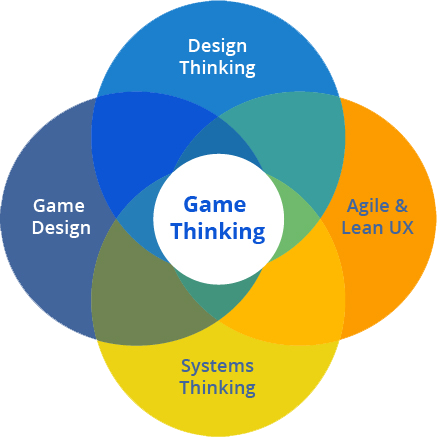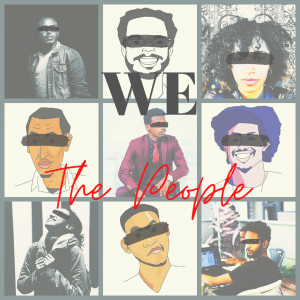‘In Game-Thinking We don’t really care about your problems,
What we really care about is You and Why you are not able to solve your own problem knowing you have them.’
Game-thinking is the new buzz word around town and to be honest, there is no, one, holistic, globally accepted definition for it and its definitions differ from the speakers’ vantage points. Some people confuse it with business gamification which is also a contradictory term yet others somehow try to use it us an umbrella word for everything relating to games (games, gamification, serious games, and simulation). I tend to fall in the latter category when I try to use it when I’m with non-game-savvy people. But I also think game thinking is beyond an umbrella word to mean ‘everything related to games’ and as its suffix ‘thinking’ implies it’s more of a mindset, a thinking framework than just an umbrella term and that’s what will be explored in this article.
As a game thinking expert, I always say “Honestly, We don’t care about your problems, that’s not our main concern. What we really care about is you and most importantly why you are not able to solve your own problems while knowing you have them. That’s our major concern”. What makes Game thinking different from the other problem-solving methodologies like strategic thinking and design thinking is that it takes into consideration the human element of problem-solving. Like the others, It doesn’t start from the objective which assumes similar problems require similar solutions but rather it is a subjective perspective that assumes solutions have more to do with the problem owner than the problem itself. Game thinking inherits the objective perspective from the other thinking frameworks and adds a subjective element into the equation. Simply put game thinking assumes two individuals facing the same problem (in almost all external aspects) don’t necessarily accept the same solution. Game thinking is to design thinking as behavioral economics is to economics. It embraces that how much effort we put into assuming people to be rational and predictable beings, the reality is that we’re just too unpredictable and irrational and there is a lot we still don’t know and that people’s perception of solutions is as much important as the actual solutions themselves. We can look at the power of placebos (self-healing/divine potential). A simple question to ask will be “which is much better ‘a critically sick person that’s completely persuaded that he’s well after taking a placebo or a critically ill person who still feels sick even after taking an actual medication and technically cured?'”. Yes, this is a tough question to answer yet even though the later one guarantees actual longevity, what’s the value of it if you’re still feeling sick?
Game thinking is not exactly a problem-solving methodology. As a matter of fact, the main job of a game designer is to make unnecessary problems. So what is it? Well to understand this we need to look deeper into game design and a gamer mindset. Yes, game designers design challenges for a living. But they don’t design impossible challenges. There is an unwritten law of trust between game designers and players. This law states that all challenges in the game might be hard but never impossible. The challenges will be fair and the players will trust this. This trust is what makes gamers different from your ordinary person in real life, gamers are always running towards challenges no matter how big they seem. If there is a big monster up ahead, then a gamer knows quite well that’s where he belongs, that’s where the answer is. But as an ordinary person in real life we’re always avoiding challenges. And this is because we don’t trust the system. So what game thinking experts do is they create a safe, challenging but ‘fair’ platform where players can be desensitized to the fear of their actual challenges. So you can think of game thinking as turning ordinary persons into a gamer.
Another aspect of game thinking is the problem-solving process. For example, what makes design thinking powerful is how it tries to understand the problem and most importantly the problem owner through empathizing. But once the empathy process is undertaken then the problem-solving process continues as usual. Game thinking takes this a bit further. Like put previously, game thinking is not about solving problems. It’s not about providing the fish, it’s more like teaching the problem owner how to fish and the fishing will be done by the owner itself. Game Thinking is about empowering and equipping the client with ways they can solve their own problems. It might sound too obvious but the most efficient way of solving problems happens when the owner of the problem solves it themselves. Because the most common methods of communications we have are ‘words’ and truth be told ‘words’ are the least effective way of understanding something or someone. And the reality is whenever we’re solving other people’s problems what we’re actually doing is we’re solving the personally translated version of those problems and not actually the problems themselves. No wonders most solutions don’t create impacts and as a matter of fact those that actually worked are more like evidence showing the problem owner and the solution providers have more in common. To be continued…



